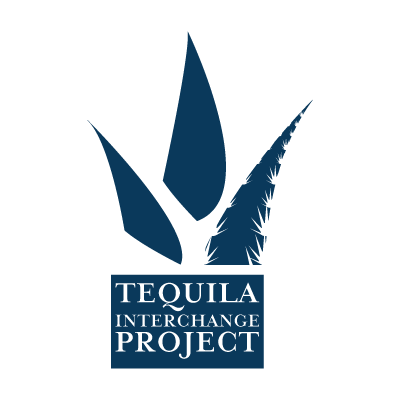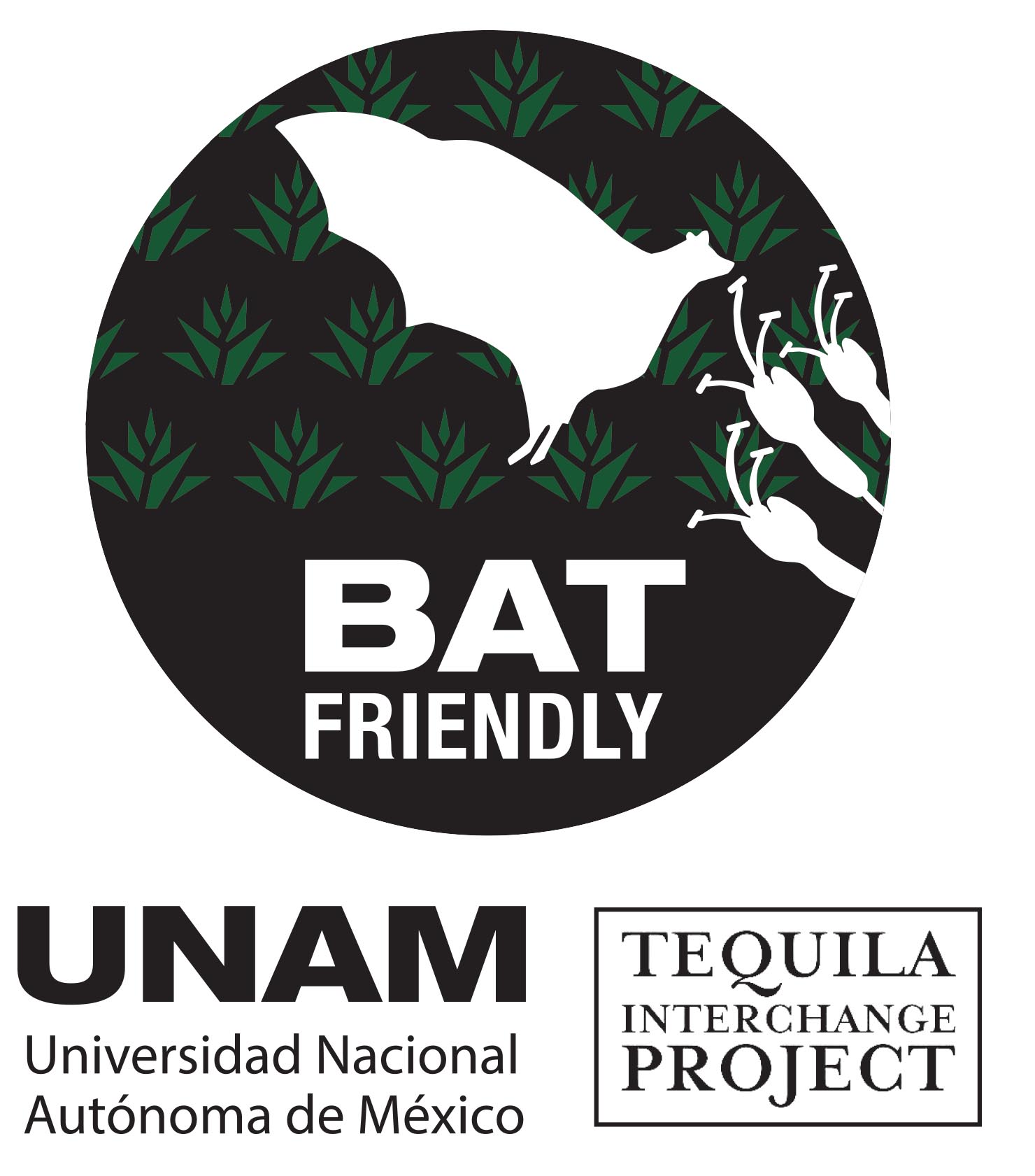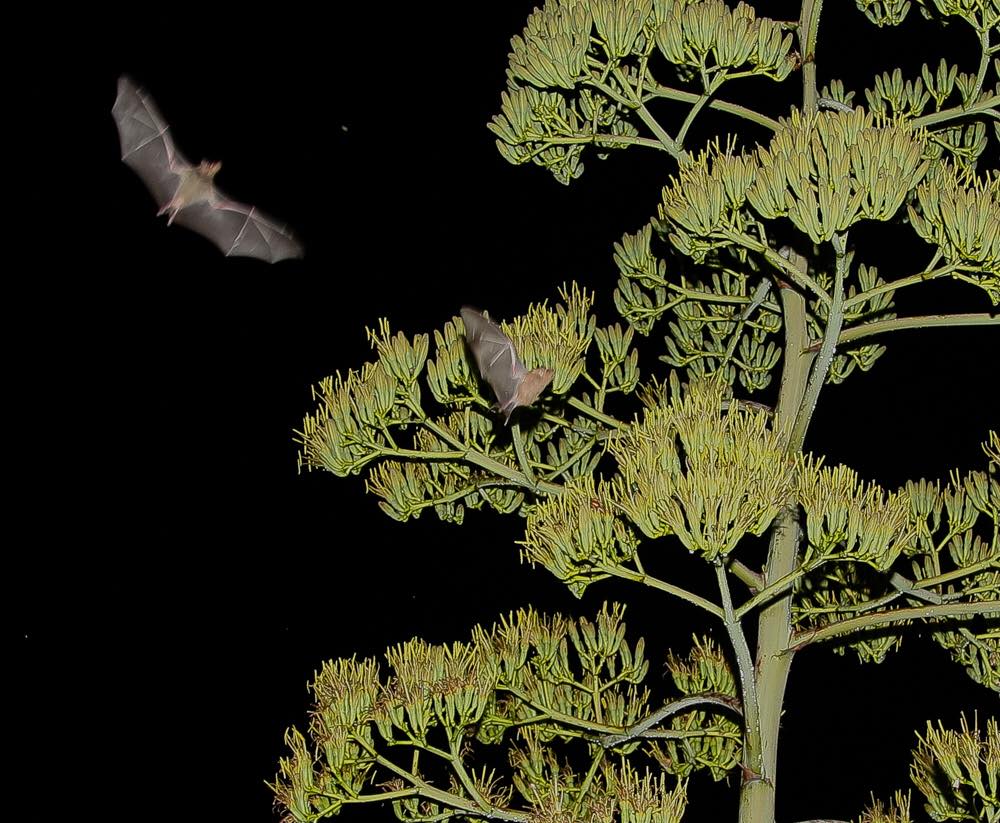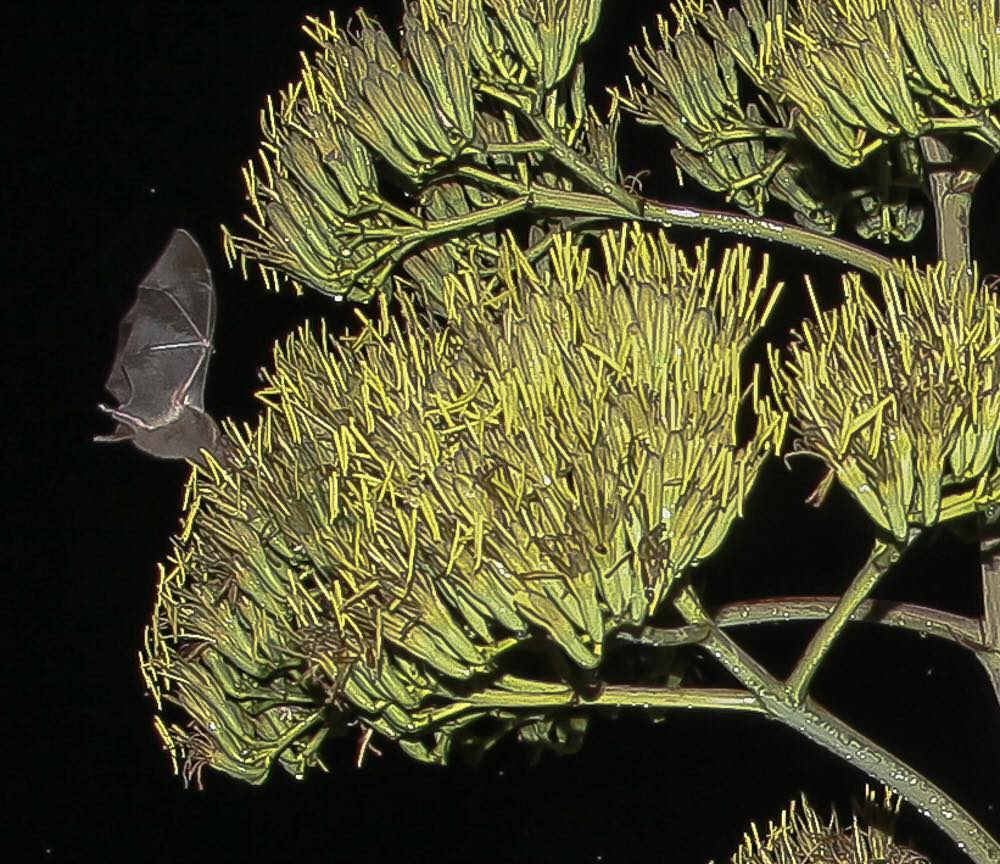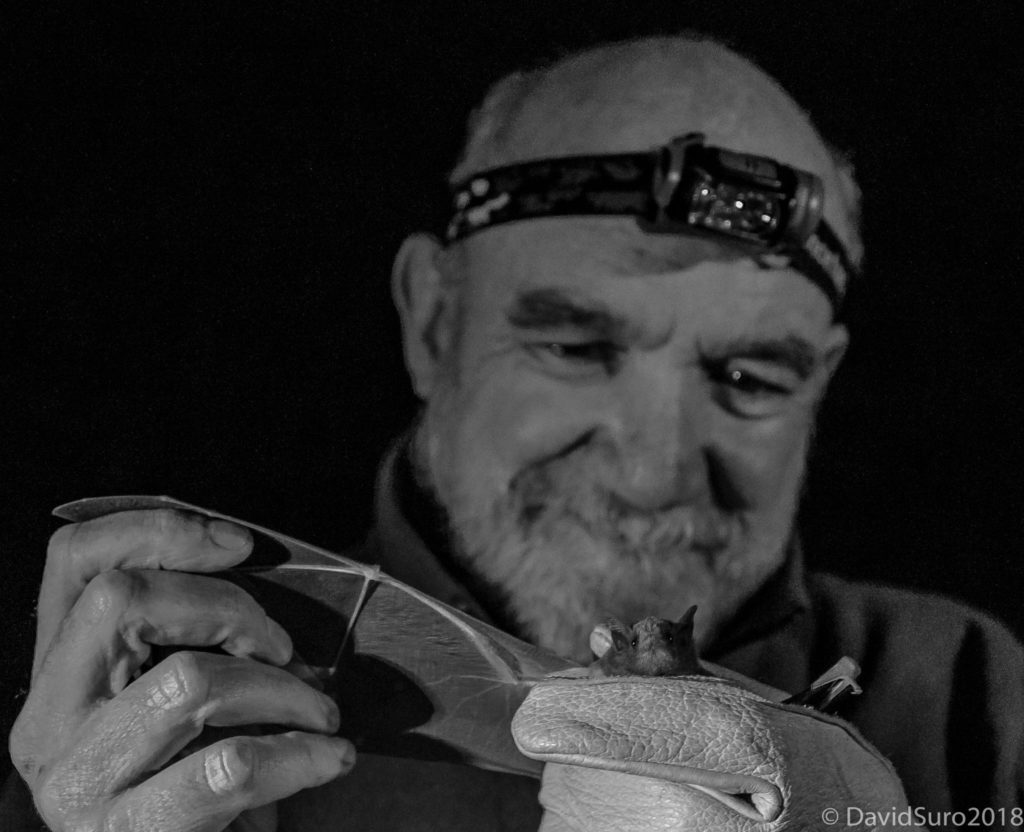With growth in the demand of agave spirits, management practices have reduced dependence on bat pollination by instead using clonal shoots to replant fields and harvesting plants before flowering to maximize alcohol yield, thereby negatively affecting both bats (by decreasing food availability) and agaves (by lowering their genetic diversity every generation).
The Bat Friendly Tequila and Mezcal™ Project invites producers to allow a few agave plants to flower. Fields conserving 5% of agaves and allowing them to flower will produce tequila and mezcal that will be labeled bat-friendly.
In 2014, Dr. Medellín, a professor at the Institute of Ecology of the National Autonomous University of Mexico – UNAM, joined forces with David Suro, president of the nonprofit Tequila Interchange Project, an alliance of producers, scientists, and bartenders that advocates the preservation of traditional agave farming, naturally pollinated agave, and other sustainable, environmentally friendly practices.
Given that Tequila is a two billion USD a year industry, and that the economy of 40,000 families is linked to blue agaves (and to bats and other pollinators), it is in the best interest of all stakeholders, from producers to the government to the individual consumer and everyone in-between, to protect the future of tequila and mezcal agaves by adopting sustainable practices and protecting pollinators and genetic resources.
Only consistent cooperation among all the sectors involved, from conservation professionals and landowners to the final consumer, will secure the future of agaves and their products and, thus, of the millions of years- old and tightly linked connections between bats and agaves.
The results of the pilot phase of the Bat Friendly™ tequila and mezcal project are very encouraging: many bats have visited, fed on, and pollinated tequila agave flowers. These flowers have produced millions of viable seeds, and over 300,000 bottles of Bat Friendly™ have been released into the market, with great success in Mexico, Australia, Europe, and the U.S. In addition, many more producers have expressed interest in joining the Project.
Since the Bat Friendly Project is not a certification program, the costs of operation must come from elsewhere, and not from the producers themselves. The Tequila Interchange Project is working to raise the funds to secure the future of the project and expand its scope and scale, incorporating many more agave spirits producers as resources allow.
We want these bat-friendly spirits to be available to you and your customers… By year’s end, tequila brands recognized as Bat-Friendly will be in the market in the U.S., the world’s biggest tequila consumer. You can help to expedite this process by:
- Visiting our website, finding your nearest importer and distributor of Bat FriendlyTM tequila and mezcal and ordering it for your bar.
- Considering creating a bat-friendly cocktail and donating part of its profits to TIP – Bat friendly.
- Hosting your own fundraising event (with support from TIP)
- Inviting your customers to join the effort, directing them to our website or crowdfunding campaigns
- Partnering with TIP for other creative ways to support
The Bat Friendly Tequila and Mezcal™ is led by:
- Dr. Rodrigo Medellín is Senior Professor at the Institute of Ecology UNAM, and has conducted research for the conservation of bats and other mammals for over 30 years. His research seeks to inform and orient policy and decision-making processes in conservation. In part, his work led to delisting the lesser long-nosed bat, a previously endangered agave pollinator, in Mexico. Rodrigo is Co-Chair of the World Conservation Union´s Bat Specialist Group.
- David Suro-Piñera is the President and Co-Founder of the Tequila Interchange Project (TIP), a 501(c)3 nonprofit organization that advocates the preservation of sustainable, traditional, and quality practices in the industries of agave distilled spirits. The work of the organization that he presides facilitates the translation of academic work, and sponsors research projects such as the Bat Friendly™ Project. TIP considers the Bat Friendly Project to be fundamental in establishing sustainable practices for the fragile ecosystem of bats and agave.
